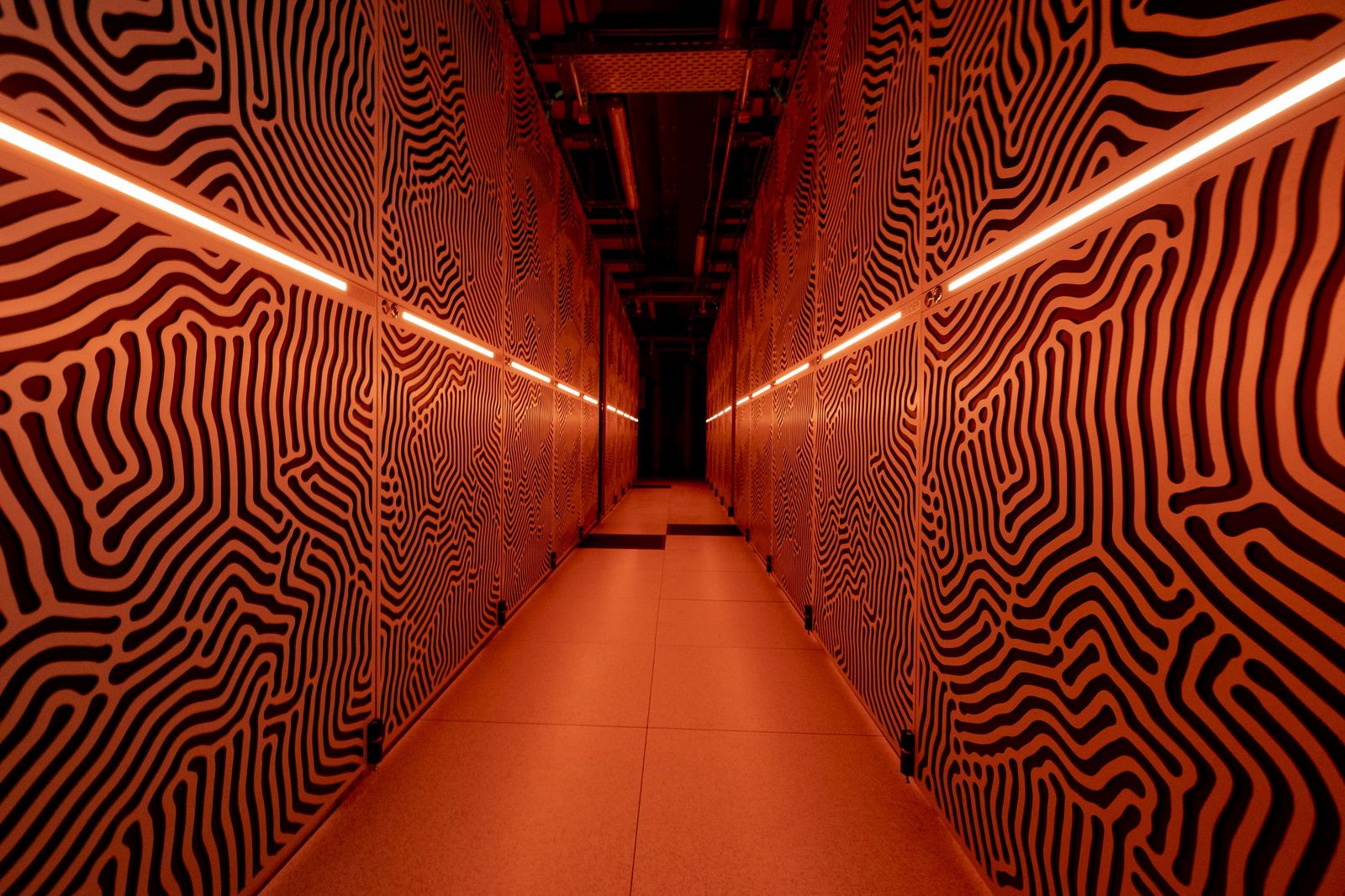NEWS
JUPITER Supercomputer Crosses Exascale Threshold as Winners of Gauss AI Compute Competition Begin to Leverage the System for Science
17/Newsflash –

Copyright: Forschungszentrum Jülich / Sascha Kreklau
The system, which was installed at the Jülich Supercomputing Centre (JSC)—one of the three national supercomputing centers that comprise the Gauss Centre for Supercomputing (GCS)—was co-developed and co-financed between the EuroHPC Joint Undertaking and the German Federal Ministry of Research, Technology, and Space (BMFTR) and the North Rhine-Westphalia Ministry of Culture of Science (NRW MWK). The system strengthens European digital and scientific sovereignty and provides a world-class research tool for European researchers. The system was named the “Top Supercomputing Achievement” as part of the HPCwire Readers’ Choice Awards during the SC25 conference.
A new standard for efficiency and sustainability
Since the contract was signed in October 2023, JUPITER has been built in record time. Europe's first exascale computer was installed in less than two years – in a specially constructed innovative data centre, the Modular Data Centre.
With its highly efficient warm-water cooling system and the planned integration of waste heat into Forschungszentrum Jülich’s heating network, JUPITER is setting new standards for sustainable high-performance computing. According to the latest Green500 list, JUPITER is the world's most energy-efficient exascale system. In this way, JUPITER advances scientific research and serves as a model for climate-friendly data centres of the future.
The Gauss AI Compute Competition and advancing science for societal good
JUPITER enables new researchers to pursue new, previously unattainable scientific challenges, including training ever-larger AI models and more complex, detailed simulations.
In the lead up to JUPITER’s inauguration, GCS partnered with federal and state government funding agencies to promote the development of new generative AI models through a competition for leveraging the power of JUPITER. In the interest of better promoting the uptake of AI workflows in German research and industry, GCS worked closely with BMFTR, the NRW MWK, the Ministry of Science, Research, and the Arts of Baden-Württemberg, and the Bavarian State Ministry of Science and the Arts to host the “Gauss AI Compute Competition.”
Researchers applied for AI Compute Competition allocations. In addition to projects for training language models (LLMs) on a scale that was previously impossible, climate researchers and weather services requested access to JUPITER in order to predict extreme weather events such as heat waves and floods with greater local accuracy. Physicists and engineers applied in order to, develop new, sustainable ways to produce energy more efficiently. Biologists and medical scientists applied to better understand complex biological processes to better develop new therapies, among countless other research benefits. Even in this early test phase, JUPITER has enabled remarkable scientific advances.
The winning teams, representing a diverse set of research domains and backgrounds, are now able to access the system. For a full list of the competition’s winners, please visit: https://www.gauss-centre.eu/results/additional-allocations/winner-projects-of-the-gauss-ai-compute-competition
For more information please visit the following links:
///////////////////
JUPITER was half-funded through the EuroHPC Joint Undertaking, with the remaining half funded in equal parts by the German Federal Ministry of Science, Technology, and Space, and the Ministry for Culture and Science for the state of North Rhine-Westphalia .